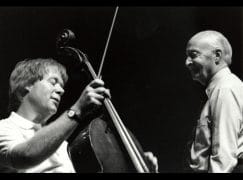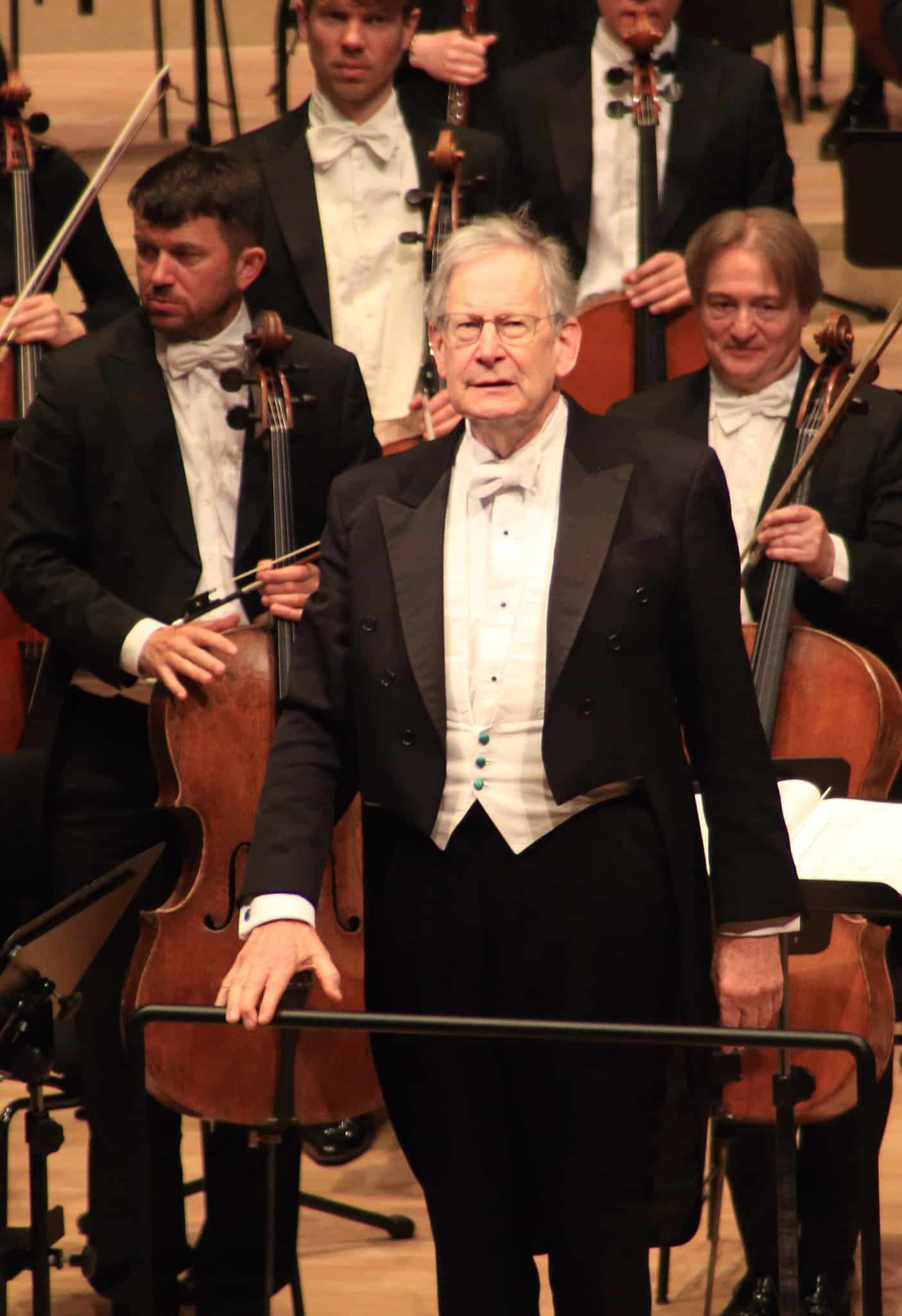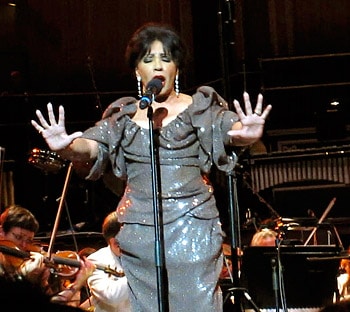Bring back Lutoslawski now
Album Of The WeekFrom the Lebrecht Album of the Week:
There was a time not long ago when György Ligeti and Witold Lutoslawski were the twin standard-bearers of audience-friendly modernism in Western concert halls, so much so that many went home convinced that the future of music was located somewhere along a plumb line dropped from the Baltic to the Balkans.
That prophecy might still hold true, but the mystery is what has happened to Lutoslawski….
Read on here.
And here.






Ligeti is hardly a perspective for new music… he belongs to a certain period of modernism when it became suffocating. He himself said: ‘I feel locked-in between the avantgarde on one side and tradition on the other’, and sought stimulation in African music of percussion ensembles (like in his piano concerto, and Etudes). He was a master of timbres (listen to his beautiful ‘Melodieen’) but hardly an inspiration for ‘the future of music’, and then, discussing music as if it is moving along a timeline is historicist thinking. If music is good, it is contemporary for ever.
Lutoslawski experimented with what got called the ‘aleatoric method’: the composer offers the performer a restricted space in which she/he may improvise, with or without some material to improvise upon. This was an attempt to bring some life in the serialist method (12-tone music). All of this – including the 12-tone method – was born from ignorance about how music works and what ‘life’ in music means, and what the creative contribution of the performer is.
Here is Lutoslawski’s Concerto for Orchestra, so that we can hear what Norman is so enthusiastic about:
https://www.youtube.com/watch?v=-IYw_8xzkWE
A truly brilliant (early) work, but to compare Bartok’s Concerto for Orchestra negatively with this piece, seems quite ‘daring’ to say the least. But to my feeling Lutoslawski is a great talent who sank because being locked-in between communist instruction-from-above and Western modernism, both sure killers of musical creativity.
That was the oddest recommendation I’ve ever read, NL.
“Wokeish faddist,” indeed LOL
I’ve recorded Lutoslawski’s 20 Polish Carols as pianist (1947) in its original version for piano & single womens voices- in this case- a girls’ choir of a UK private school. A great experience to learn & play from a truly ‘great’ composer.
I heard the Czech Philharmonic play Lutoslawski’s 3rd Symphony about seven years ago. I love the Concerto for Orchestra (and played it around 1983) but don’t really care for the 3rd symphony. But I’m up for seeing him programmed more.
I love the 4th
The Dance Preludes for clarinet is a very accessible piece based on folk music. He composed it for clarinet and piano, and later edited it for chamber orchestra. I don’t know if a wind quintet edition I have heard is his or not.
Bought the disc last week.A fascinating,mesmerizing journey through Lutoslawski´s endlessly inventive and magic soundworld..Brilliantly played,and fantastic engineering too!
I had the pleasure to play for Mr.Lutoslawski twice as an orchestra musician,back in the late 80s.
A soft spoken,very formal and corteous aristocratic man,whose old world appearance stood in marked contrast to his adventurous ,fascinating music..In rehearsals he mercilessly insisted on painstaking accuracy. Friendly,but relentlessly so.
Similar to Gyorgy Kurtag, for whom i played in a masterclass.
Having met, and learned from those two giants of music is reason enough to be grateful and thank my creator for the gift of life.
Nice, positive comment.
But: ‘giants of music’? What do we mean when we use the terms ‘giant’ and ‘music’?
And then: ‘gift of life’- Kurtag’s impressive music is nothing but mourning over entirely deserted ruins – it is all about end, death, emptiness, darkness. Listen carefully.
I know and love most of Kurttag´s output…It´s not about end,death,emptiness,desrted ruins. Kurtag´s music isn´t so simple and flat. While rememberance and grief certainly are inspirations ,it is,like all good music,about music.Many of his works are memorials for deceased friends or collaborators,yes. But the music doesn´t wallow in doom or self pity.It creates an aural memory room to focus our thoughts on our own experiences of loss and mortality.I have lost my daughter and my sister within three months. Kurtag´s music offers me a sanctuary,where i can focus on those issues,and integrate them as a natural part of my life, and even communicate with loved lost ones. It gives me strenght and acceptance of things,exactly as they are.
More important, i really don´t care about what music is.It simply doesn´t interest me much. I only care about its quality. Its inventiveness,glory,brilliance,craft,color, depth,innovativity,qurikiness,sincerity,originality,and the emotions it evokes in me. On purely musical terms.
I am absolutely not interested in ideological,philosophical or any non musical ideas and connections. Be it Adorno,Borstlap,or whoever.
I grew up as a child of jewish expats from Hitler Germany in Baltimore. From my earliest childhood on( maybe at 14 months), my parents being off to work, i spent the days sitting alone in front of the radio, for 10 or more hours.Much to the delight of my nannies, who could watch soap operas on TV all the time.I didn´t want anything and didn´t bother them.
I simply soaked in every thing which came out of the loudspeakers I didn´t care if it was Corelli,Copland,or Coltrane.And that´s how it is until now. It´s an addiction, and my listening experience is encyclopedic.Besides practicing,teaching,and performing, i don´t do much else than listening to music.
That´s why artificially erected barriers like tonal,atonal.twelve tone, etc.simply don´t exist for me.Okay, i need to know as much as possible about style,structure, performance practice,etc as a performer and teacher..But I can enjoy Rachmaninoff 2nd Symphony as much as Boulez´Pli selon Pli, or Ornette Coleman, or music of the Aka pygmies. It´s like meeting interesting people from the most diverse backgrounds. Interesting is the keyword.The only kind of music which doesn´t hold my interest is derivative stuff,written just to avoid new developments..I am averse to repetition.People repeating things ad nauseam which have been said before,and far more convincingly..I don´t even listen very often to a performance twice. I am always keen on hearing something new .Watching live streams with people of today..We have only the now…For me ,life is to short to waste the now by dwelling on the past.
That´s about all.